Image header:
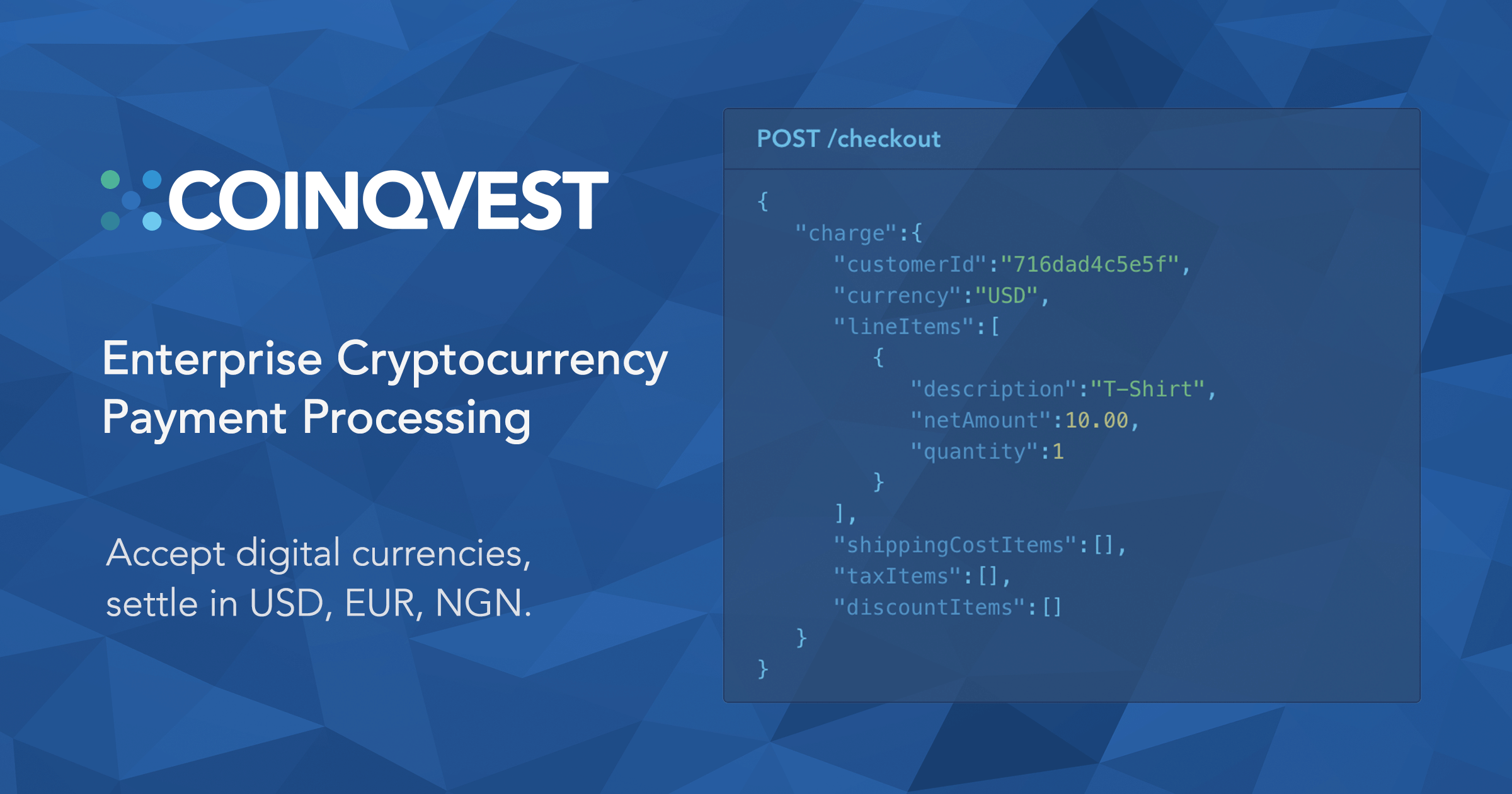
Project title:
COINQVEST - Enterprise Cryptocurrency Payment Processing. Accept Digital Currencies, Settle in USD, EUR, NGN.
Summary:
COINQVEST is an enterprise cryptocurrency payment gateway providing an all-in-one solution for merchants to effortlessly accept cryptocurrency payments online and settle into fiat, thus keeping consistent books and staying compliant.
Category:
Applications
Goals:
COINQVEST’s mission is to lower the payment barrier for the world’s merchants to join the global economy through simple digital payment processing. We process sales safely and efficiently for online merchants of all sizes and origins. Think of it as Stripe for crypto.
Product Development
Payments and settlements are production-ready and accessible via API and hosted checkouts. Register for your merchant account at www.coinqvest.com.
In Q2 we will continue to develop additional platform features, such as more detailed balance sheets, transaction history, accounting and analytics tools, financial and tax reports, data exports, and so on.
Currently COINQVEST works with any HTTP Rest Client, in any programming language. To make integration even easier, we started developing SDKs and integration kits for several programming languages and are improving the platform based on feedback. We hope to push the first SDKs live in Q3.
Go-To-Market Strategy
Initially we need to explain to merchants how they can now accept digital currencies with minimal overhead. All that, while staying compliant, and settling in a currency friendly to their accountants and regulators.
Our plan to increase adoption for COINQVEST is to initially go with a developer-first focus and streamline merchants implementation of crypto payments into their existing checkout processes. We want a product that speaks for itself. A clean and pleasant UI, comprehensive API documentation and SDKs are our approach to achieve that.
Additionally, we are putting a focus on content marketing (see the COINQVEST blog) and developing a B2B sales strategy. A PR campaign enlisting several crypto media outlets is being worked on.
Funding & Regulatory:
We are bootstrapped. In order to stem regulatory requirements and build the team for our commercial rollout, we are considering external investment.
Timeline:
See Goals.
Description:
COINQVEST provides digital currency checkouts that automatically go from Bitcoin (or any other currency anchored on the Stellar Network) to an online merchant's bank account, in minutes. COINQVEST helps merchants programmatically accept and settle payments in new digital currencies while staying compliant, keeping their accountants and tax authorities happy. With COINQVEST, sales can be denominated and settled in a merchant's local fiat currency (e.g. EUR, USD or NGN) regardless of whether their customers pay in Bitcoin, Ether or Stellar Lumens.

The COINQVEST platform provides the following key features:
COINQVEST Offers Real-time Currency Conversion and Instant Transaction Settlement: Customers choose from a list of cryptocurrencies to submit payment. COINQVEST automatically exchanges/converts payment into the seller's desired currency. Funds are deposited in the merchant's wallet or account. Once a payment is executed, settlement takes only seconds.
COINQVEST Enables Risk-free Transactions: Transactions take place on the Stellar Network — they are exchanged, tracked, and viewable immediately with transparency. Inter-currency fluctuation is minimized and there is no risk of non-payment.
COINQVEST Supports Compliant Accounting: COINQVEST’s business toolkit includes analytics and tax-keeping data to keep enterprises tuned-in and compliant. It pinpoints effective strategies or revenue leaks, and equips businesses with automated invoicing and financial reporting.
COINQVEST Provides Easy Integration for Developers: It provides two integration methods for an enterprise’s current setup. Our hosted checkout option is as simple as placing our checkout button on a website’s payment page. Advanced uses connect to COINQVEST’s REST API which allows our service to mesh with their online business.
Benefits of COINQVEST for the Stellar Network
- COINQVEST is tightly knit with anchors and provides them with new revenue streams
- COINQVEST brings assets/volume onto the DEX, every time a merchant makes a sale
- COINQVEST opens an adoption path for online merchants previously unaware of Stellar
- COINQVEST is part of the high availability Tier 1 Core Quorum and operates three full validators
- COINQVEST runs a fast and public Horizon deployment
- COINQVEST provides a functional and globally available payment gateway built on the SDEX
How COINQVEST uses Stellar:
- COINQVEST works closely with Stellar cryptocurrency anchors to enable native payments on numerous blockchains
- COINQVEST also integrates with Stellar fiat anchors to deposit merchants' funds in their bank accounts
- COINQVEST makes heavy use of strict-receive and the new strict-send path payment operations
- COINQVEST monitors currency prices on the SDEX and initiates conversions in real-time
- COINQVEST takes advantage of Stellar’s unparalleled architecture to add anchors in no time, thus able to roll out into new markets
For more details, team members, API docs, please visit www.coinqvest.com
And, of course, we’d love to hear your feedback! Connect with us on our public Keybase channel @coinqvest.public or chat directly with @marcinx or @xiaohu
Gallery/Screenshots:
Easy and Compliant Billing via UI or API:
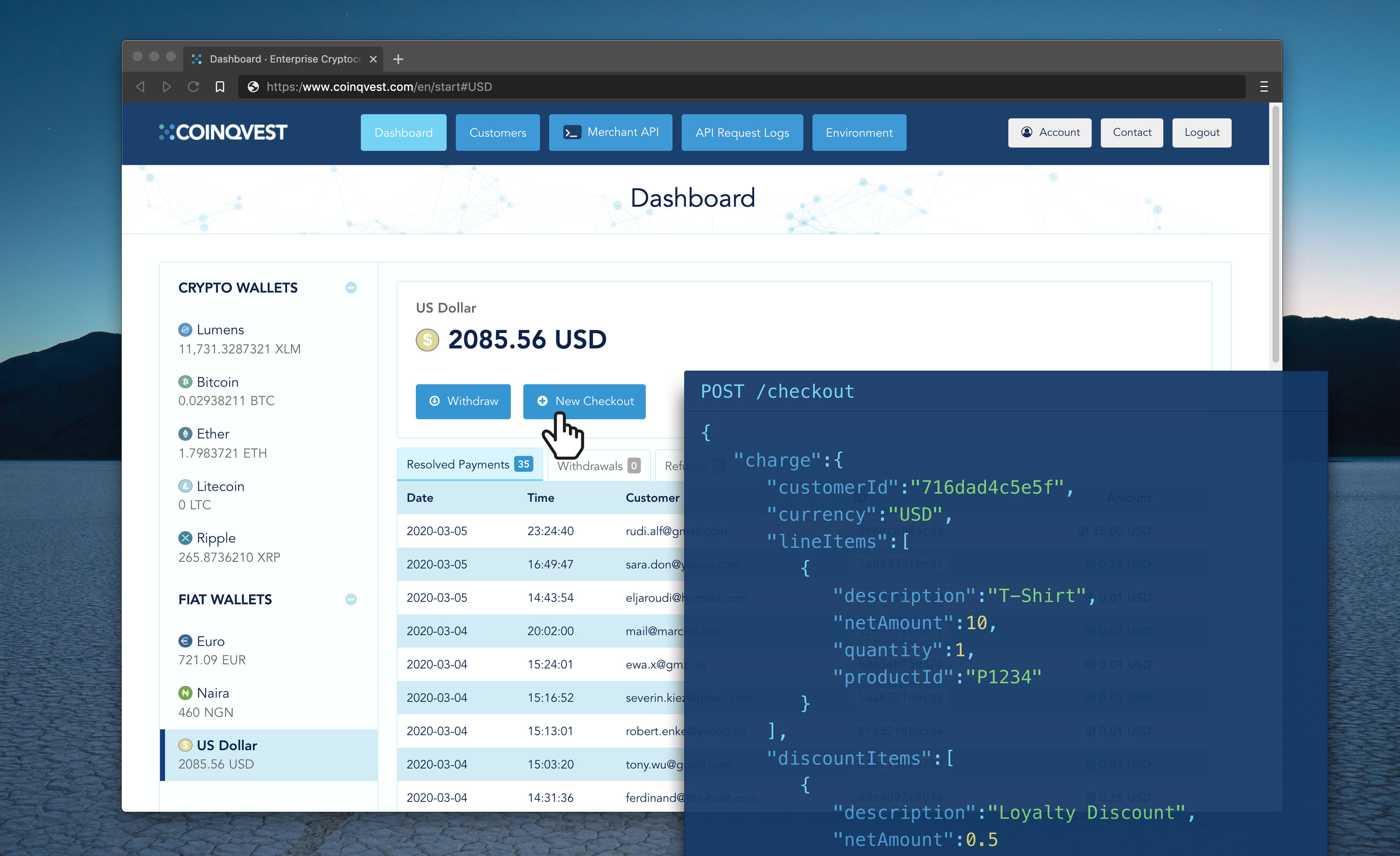
Customer Management, Transaction Records and Invoicing via UI or API:
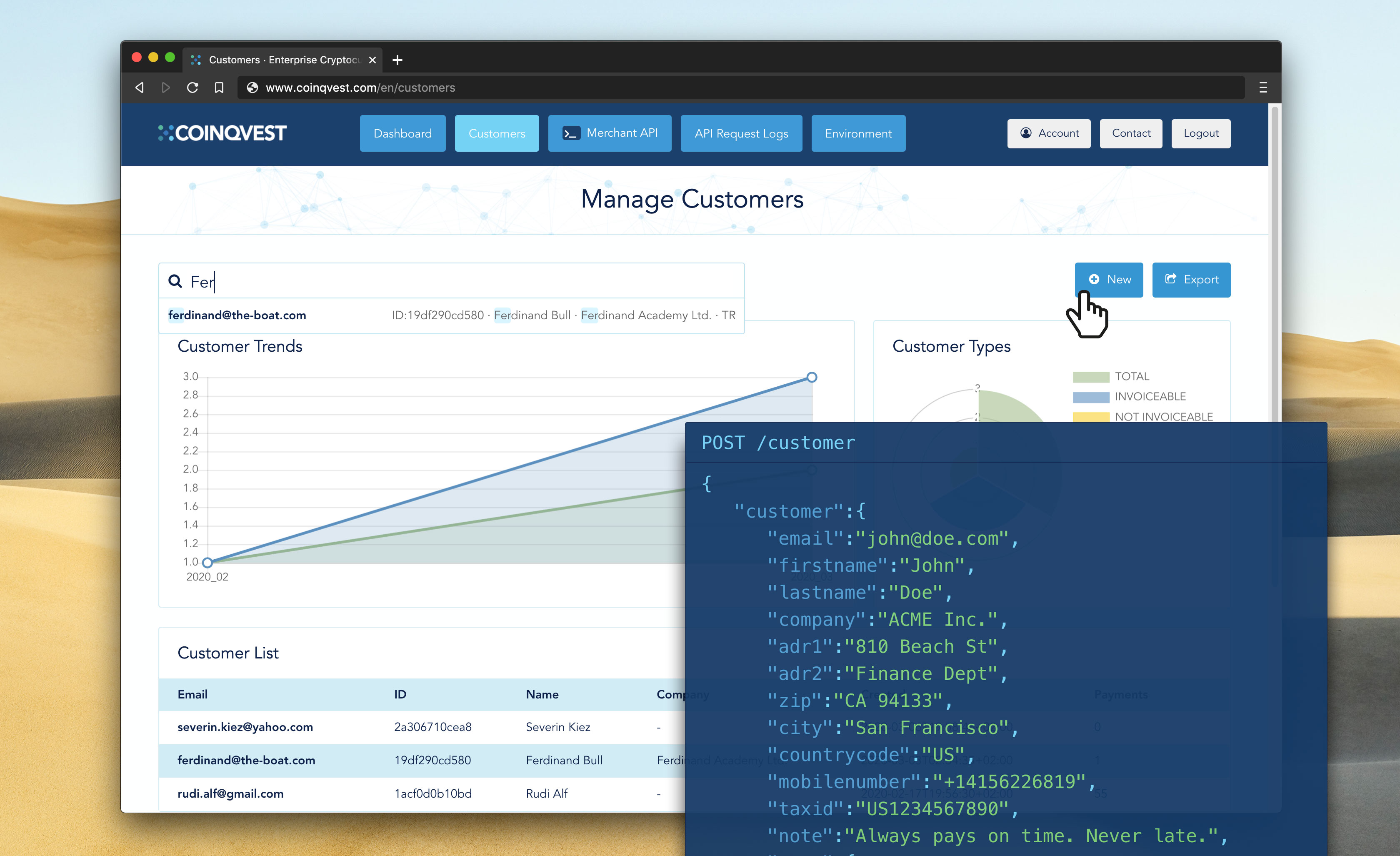
Instant Withdrawals to Fiat or Blockchain via UI or API:
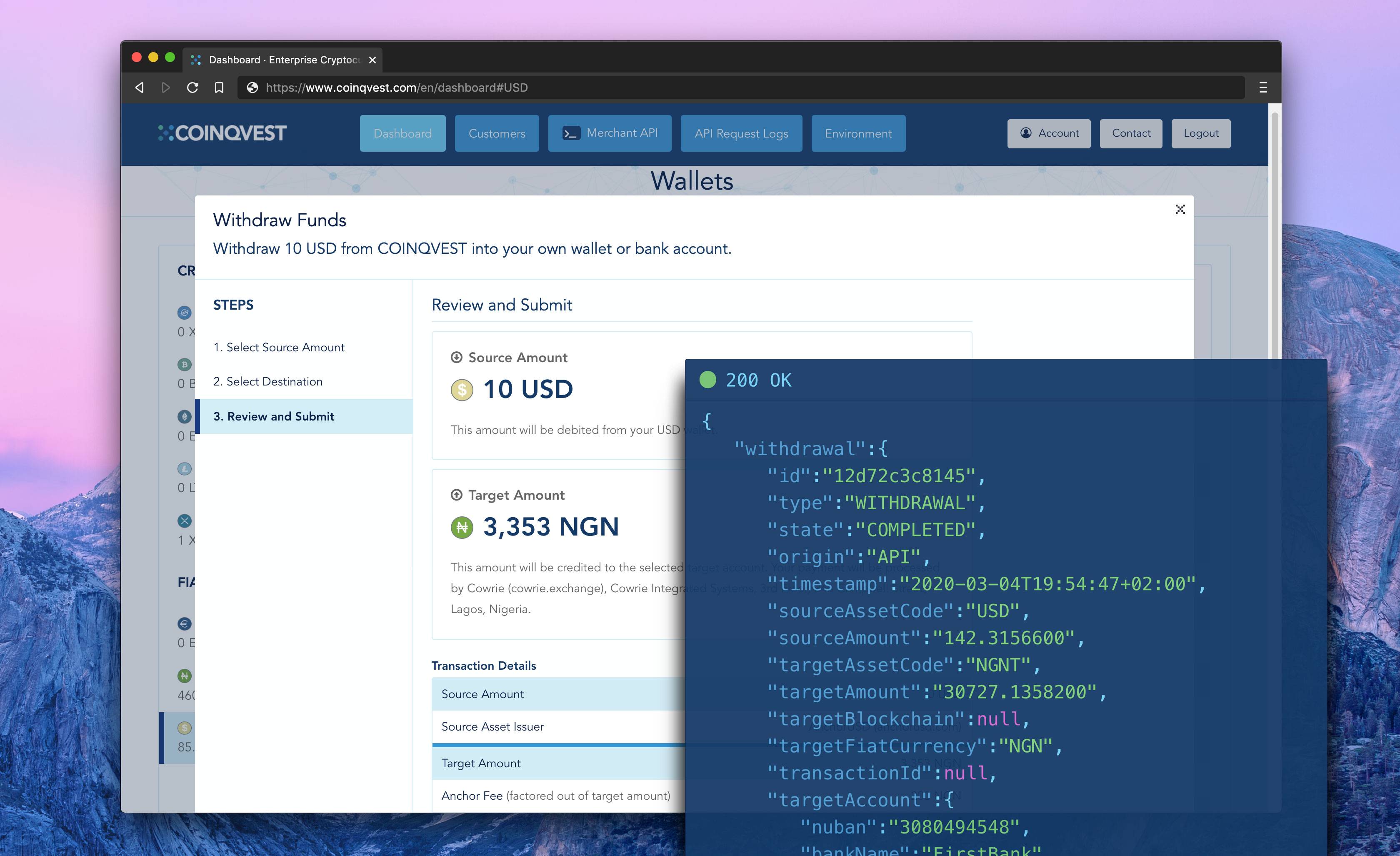
Real Time API Logging:
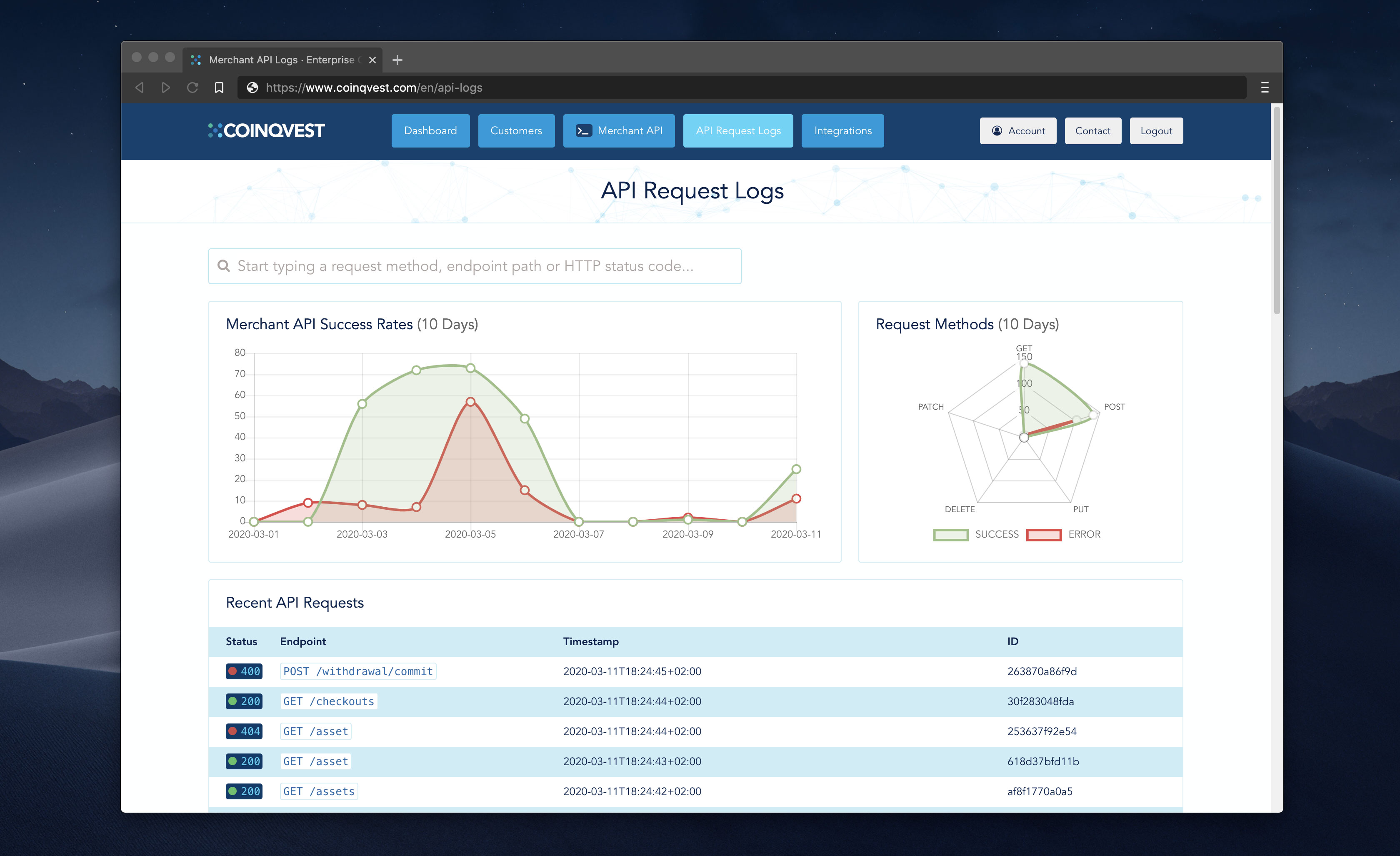
Developer Friendly API Request Monitoring:
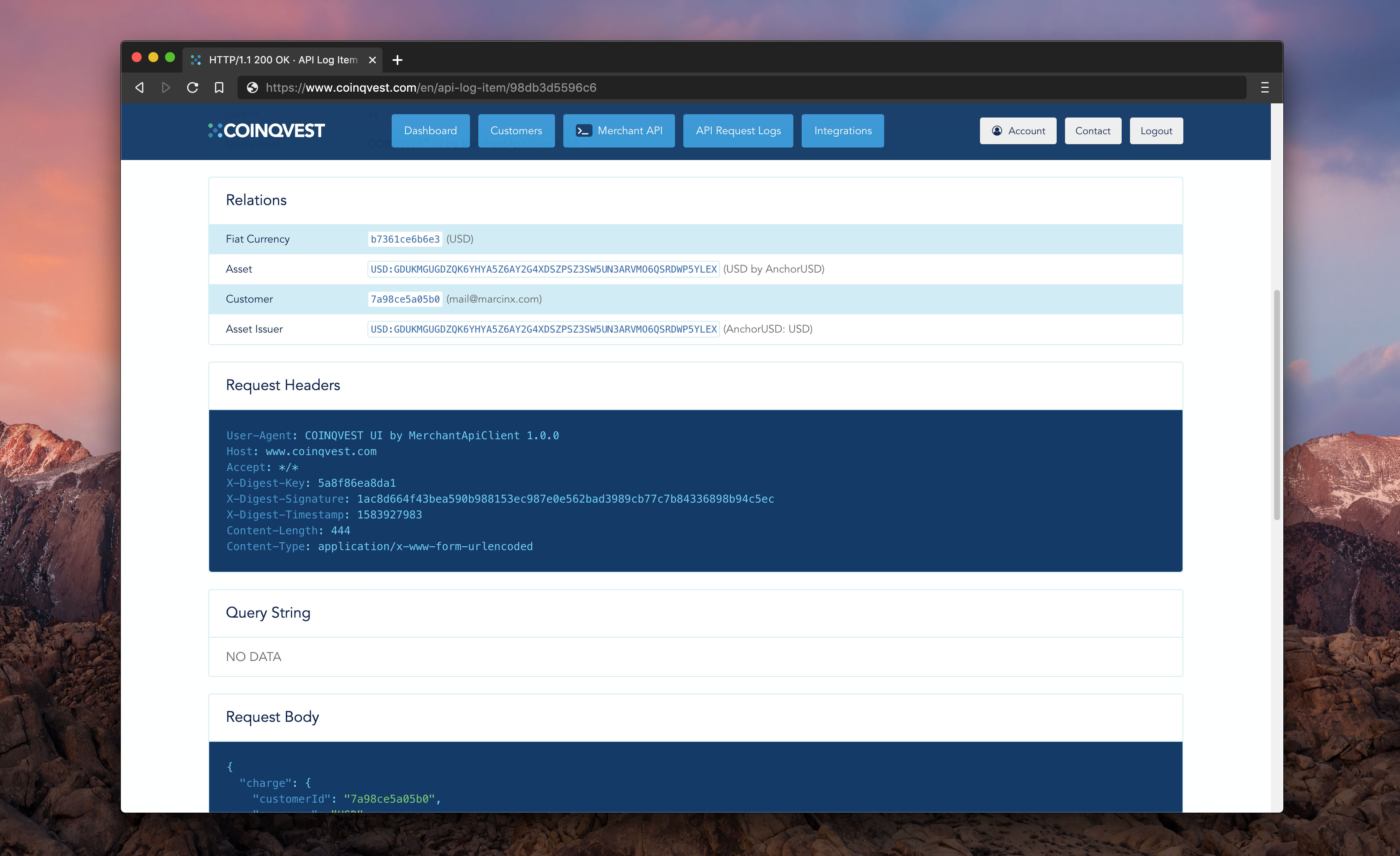
Roles And Access Control:
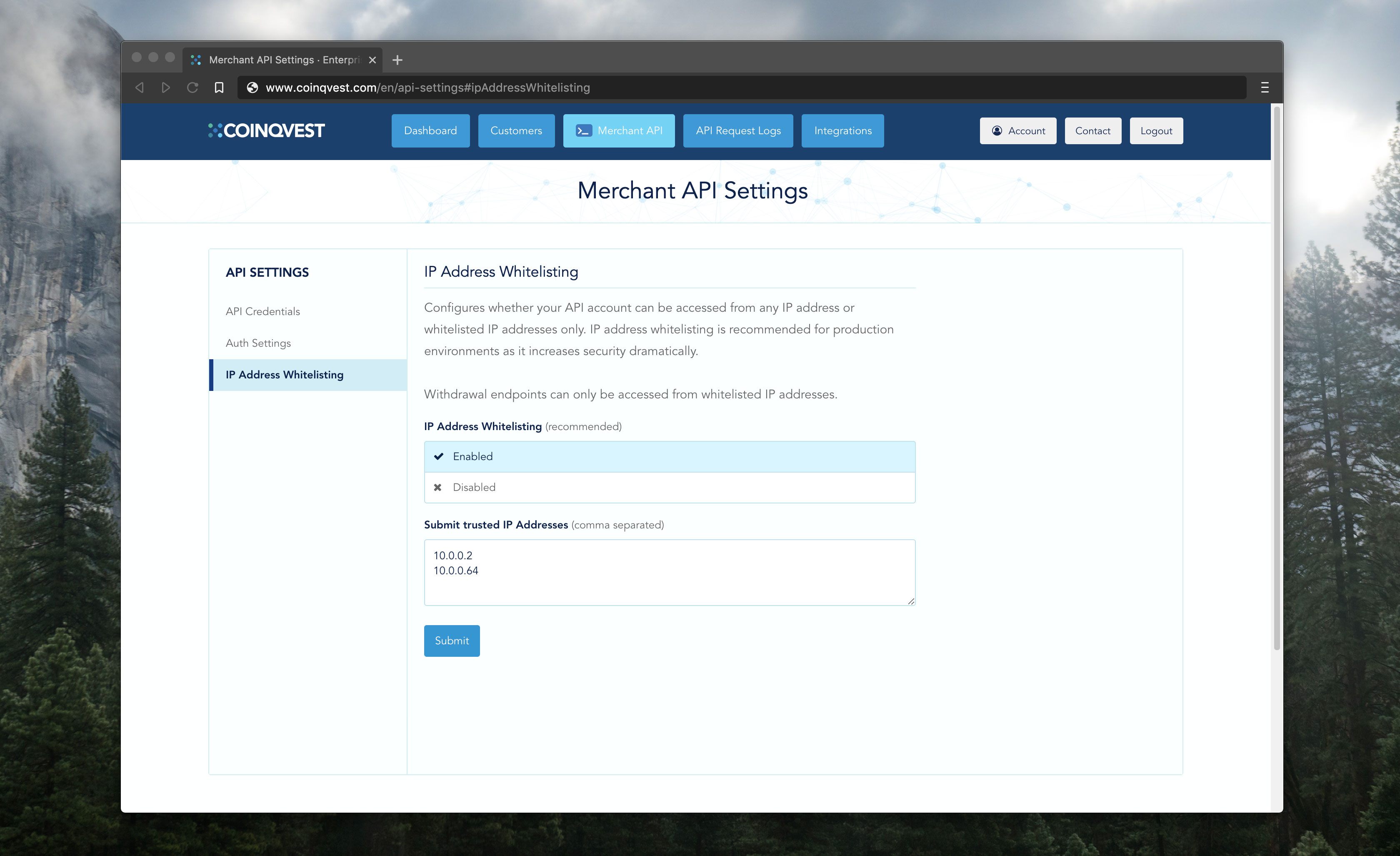
Expandable Integrations:
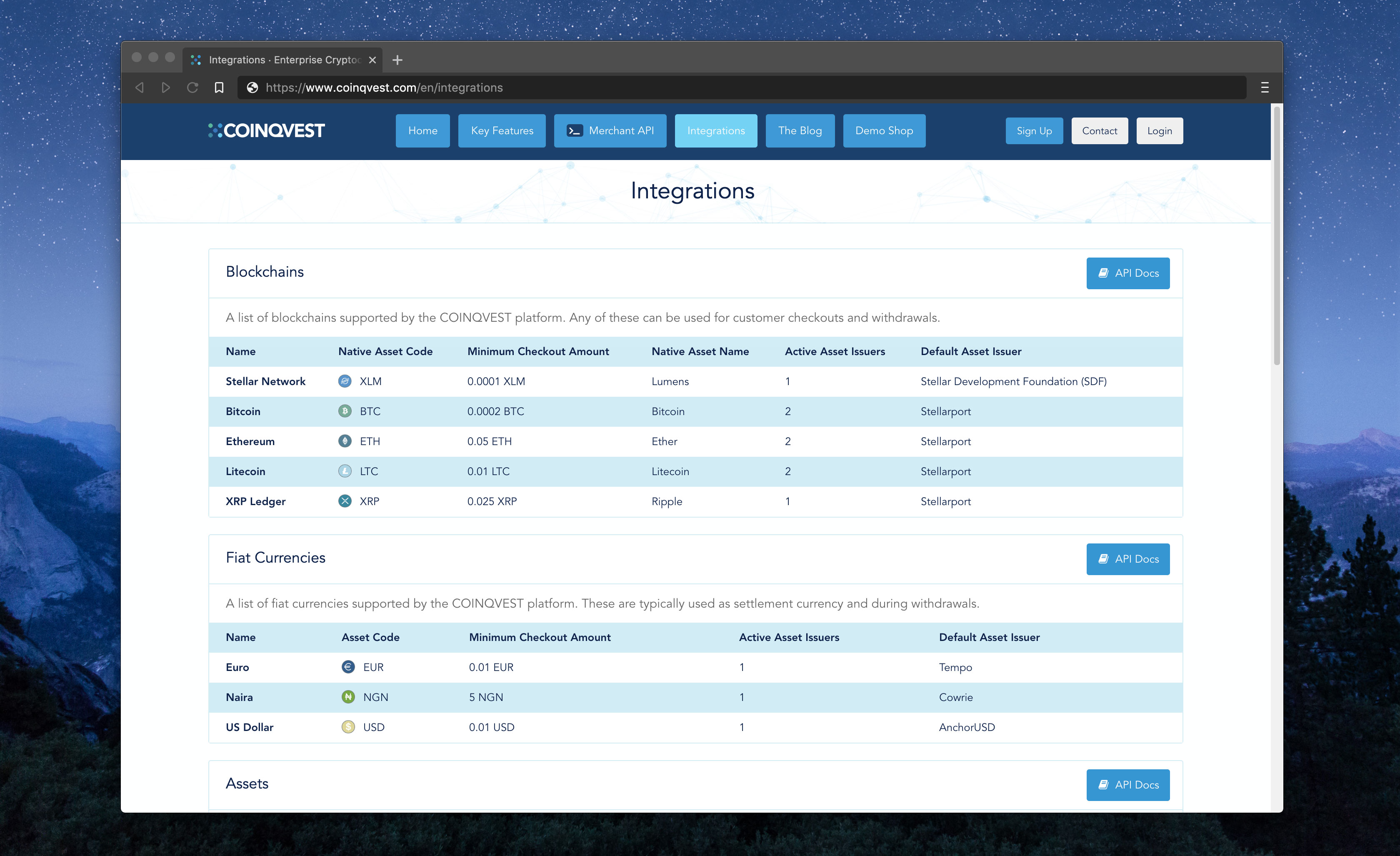
Enterprise Level APIs:
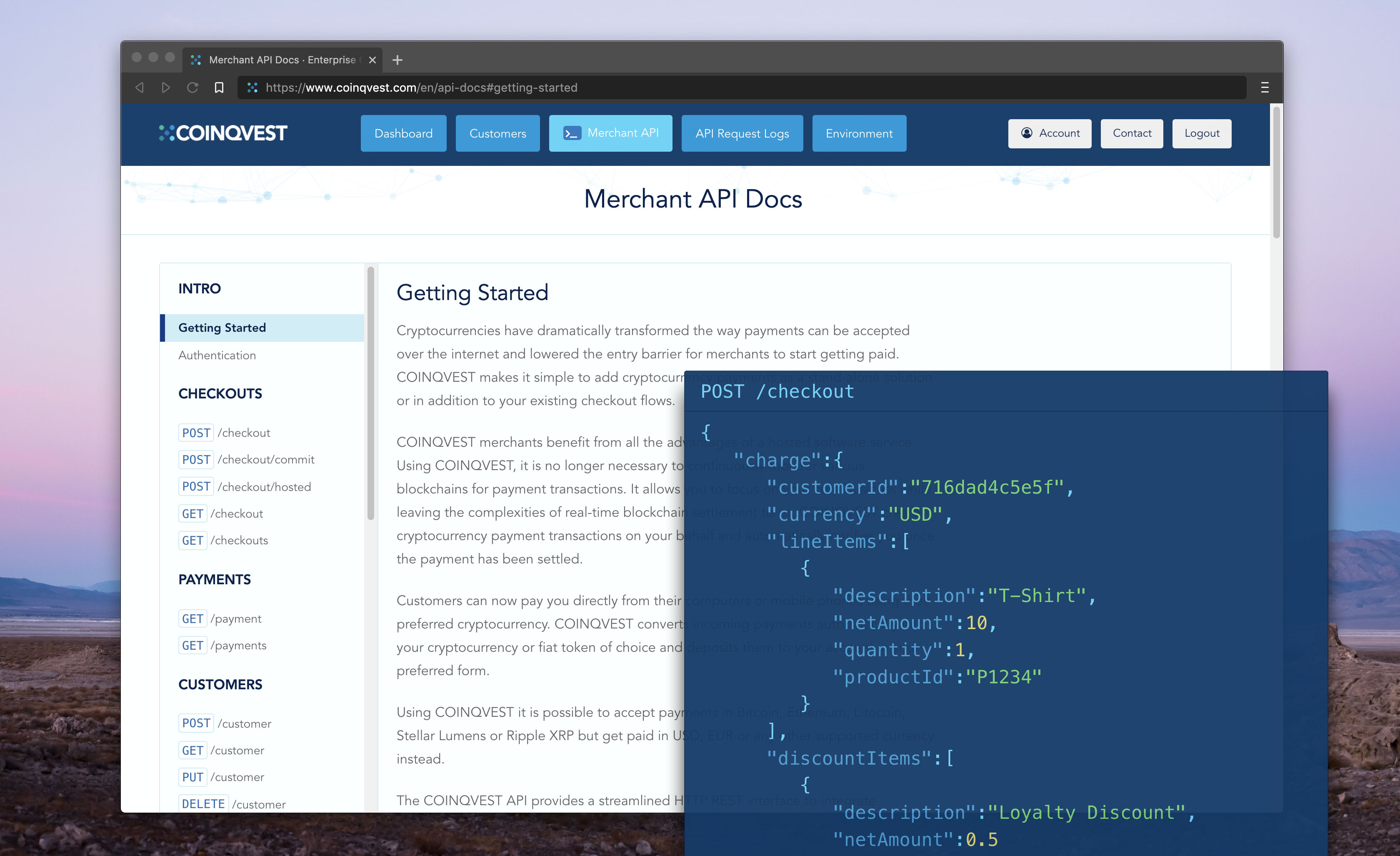
Hosted or (white-label) API Level Checkouts:
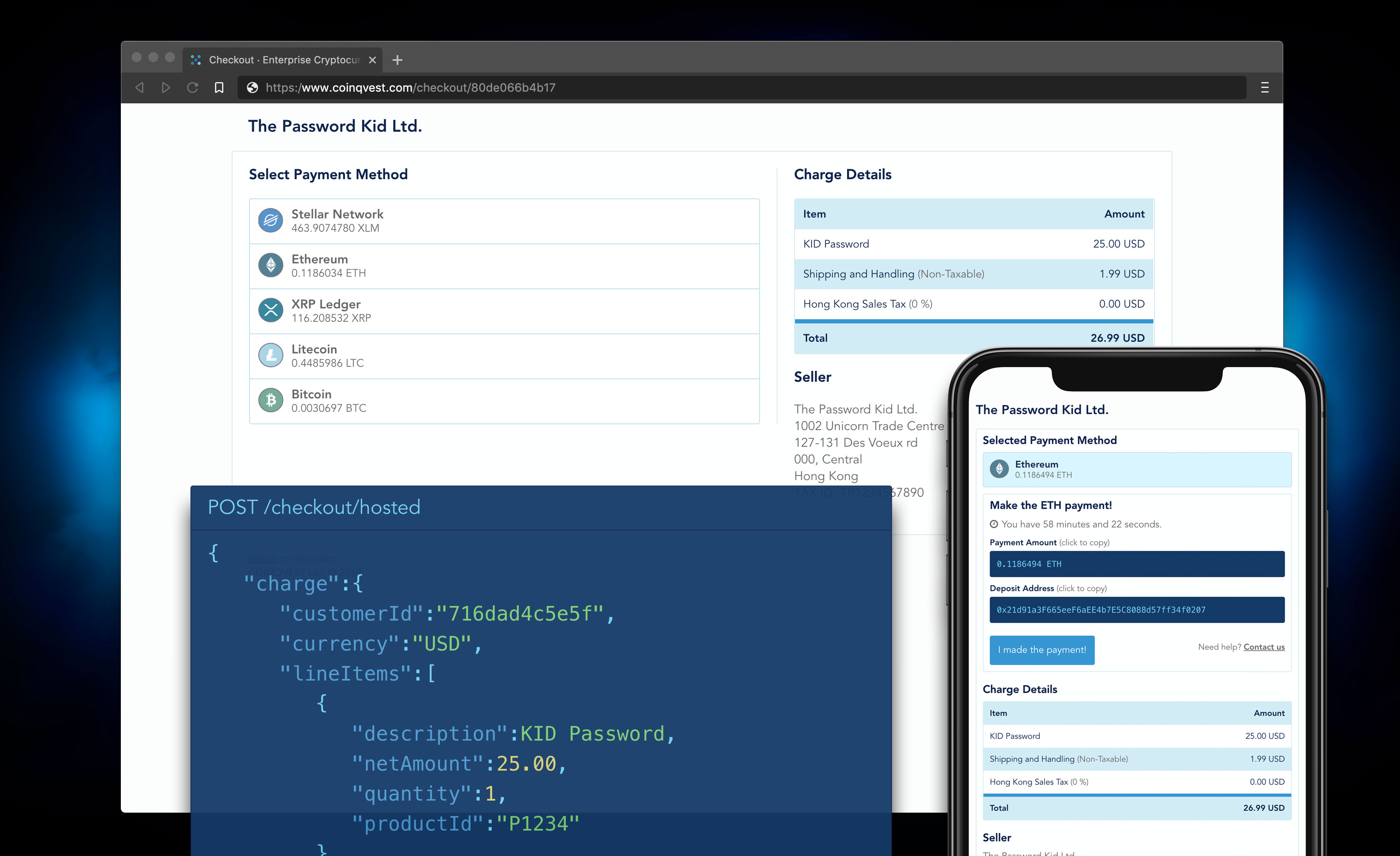
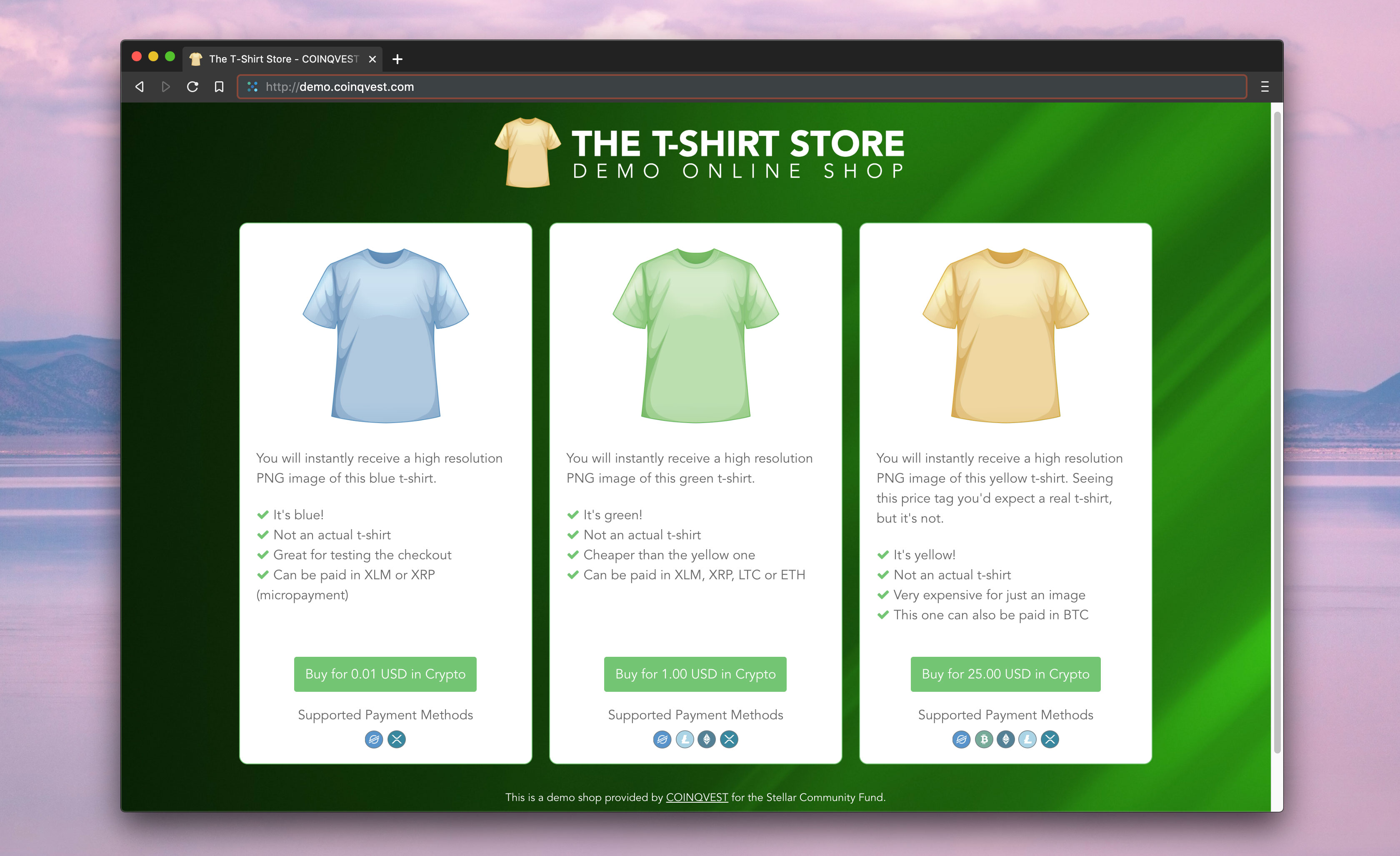
Please try out the demo shop for SCF to test hosted checkouts from the perspective of a customer. You can test a micro-payment by selecting the blue t-shirt and paying 0.01 USD with any Stellar asset (we support strict-send and strict-receive path payment operations) or native XRP. Alternatively you can test the other options to pay with a larger variety of supported cryptocurrencies (native Bitcoin, Ethereum or Litecoin). Ping us on Keybase afterwards and we'll refund your payment. This is a hosted checkout, which takes minimal effort to implement in existing online shops. Merchants can also opt for fully un-branded API level checkouts in their backend.
Links:
Tags:
Online Payments, Payment Processing, Payment Gateway, Digital Payments